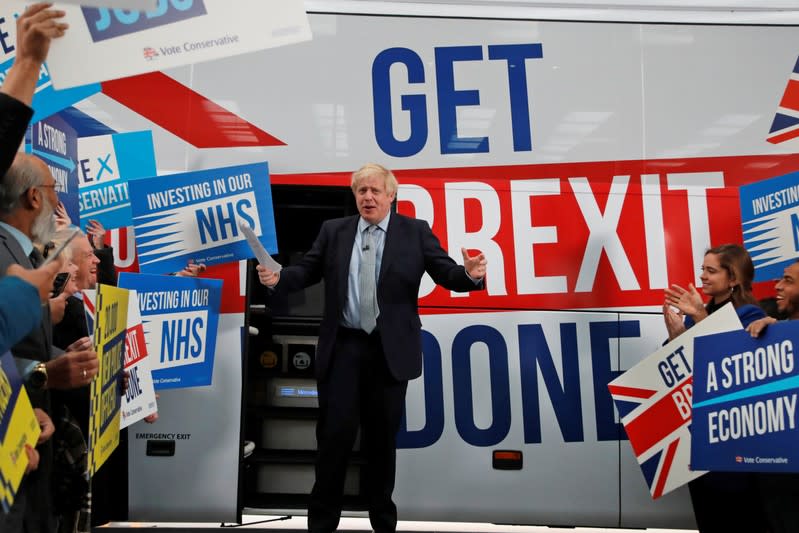UK PM Johnson's Conservatives have highest support since 2017 - polls

LONDON (Reuters) - British Prime Minister Boris Johnson's Conservative Party have the highest level of support since 2017, according to opinion polls published on Saturday.
The Dec. 12 election was called to end three years of disagreement over Brexit that has sapped investors' faith in the stability of the world's fifth largest economy and damaged Britain's standing since it voted in a 2016 referendum to leave the European Union.
Johnson, 55, hopes to win a majority to push through the last-minute Brexit deal he struck with the EU last month after the bloc granted a third delay to the divorce that was originally supposed to take place on March 29. Voters in 2016 referendum narrowly voted in favour of leaving the EU.
Johnson's Conservatives lead Labour by 10-17 percentage points, four polls published on Saturday show.
A YouGov poll showed support for the Conservatives stood at 45%, the highest level since 2017, compared with Labour on 28%, unchanged. The pro-European Union Liberal Democrats were on 15%, and the Brexit Party was on 4% unchanged.
A separate poll for SavantaComRes also said support for Johnson's Conservatives was the highest since 2017 with his party on 41% with Labour on 33%.
The Conservatives have a 16-point lead over Labour, according to an opinion poll published by Opinium Research.
A poll by the Mail on Sunday said Johnson's party had a 15-point lead over Labour.
The first December election in Britain since 1923 will be one of the hardest to forecast in years. Brexit has scrambled voters' traditional loyalties and is giving smaller rivals a chance to challenge the two biggest parties, Johnson's Conservatives and the left-of-centre Labour Party led by Jeremy Corbyn.
Although opinion polls show the Conservatives are well ahead of Labour, analysts caution the overshadowing issue of Brexit, which has divided both major parties and their voters, could confound conventional calculations.
(Reporting by Andrew MacAskill; Editing by Angus MacSwan and Daniel Wallis)


